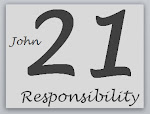I absolutely love the chorus to Rend Collective Experiment's song titled "Build Your Kingdom Here."
Build Your kingdom here.
Let the darkness fear.
Show Your mighty hand.
Heal our streets and land.
Set Your church on fire.
Win this nation back.
Change the atmosphere.
Build Your kingdom here.
We pray.
What if we could say these words and MEAN them?
"BUILD YOUR KINGDOM HERE"
This first line is PACKED with challenges for the church.
It's a prayer for God to advance HIS kingdom, not ours. How often do we aspire to advance our own ideas, our own agendas, our own philosophies, our own methodologies, our own personal preferences. We want to build a kingdom of our own liking. One that we're familiar with. One that we're comfortable with. Lord, build YOUR kingdom here, not our own.
It's a prayer for God to build His kingdom, RIGHT HERE where we are now. Right in the middle of the mess in which we find ourselves. In the middle of the mess in our homes, in our communities, in our churches. There is no ideal place for God to build His kingdom except the place in which we find ourselves right now. Jesus, build your kingdom HERE, right where we find ourselves. We're not looking for an easy way out. We're not looking for you to move us to a place where things are more comfortable. Build your kingdom right where we are today.
It's a prayer for GOD to build. It's a surrender to the fact that God is the builder; without His handiwork, we won't accomplish a thing. It's a prayer of dependence on Him. Lord, we need YOU to do the work that only you can do. We recognize that you are in the construction business as you alone can build your church (Matthew 16:18). We are willing servants ready to take hear your directions as you work through us to do your construction work.
Lord, build your kingdom here.








